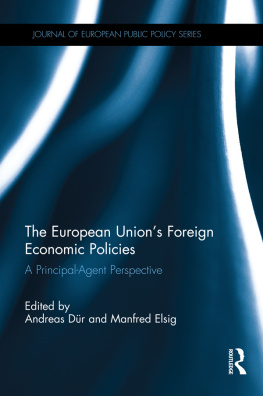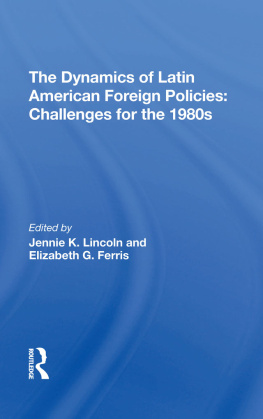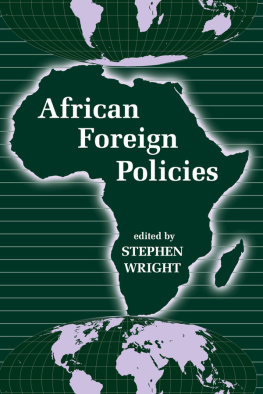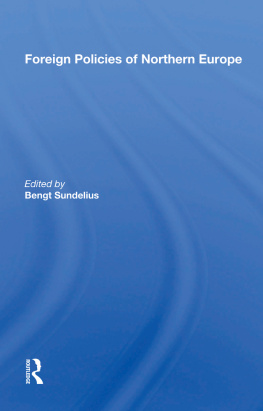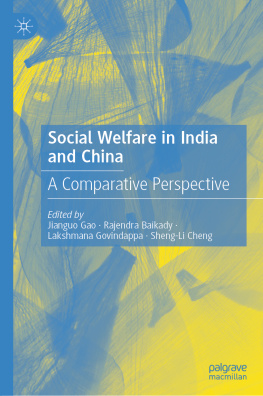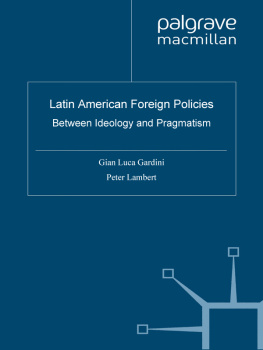Alhadeff - BIE 2004, 42: Hof Amsterdam, 22-05-2003: People at Work
Here you can read online Alhadeff - BIE 2004, 42: Hof Amsterdam, 22-05-2003: People at Work full text of the book (entire story) in english for free. Download pdf and epub, get meaning, cover and reviews about this ebook. publisher: Kluwer, genre: Politics. Description of the work, (preface) as well as reviews are available. Best literature library LitArk.com created for fans of good reading and offers a wide selection of genres:
Romance novel
Science fiction
Adventure
Detective
Science
History
Home and family
Prose
Art
Politics
Computer
Non-fiction
Religion
Business
Children
Humor
Choose a favorite category and find really read worthwhile books. Enjoy immersion in the world of imagination, feel the emotions of the characters or learn something new for yourself, make an fascinating discovery.

BIE 2004, 42: Hof Amsterdam, 22-05-2003: People at Work: summary, description and annotation
We offer to read an annotation, description, summary or preface (depends on what the author of the book "BIE 2004, 42: Hof Amsterdam, 22-05-2003: People at Work" wrote himself). If you haven't found the necessary information about the book — write in the comments, we will try to find it.
Alhadeff: author's other books
Who wrote BIE 2004, 42: Hof Amsterdam, 22-05-2003: People at Work? Find out the surname, the name of the author of the book and a list of all author's works by series.
BIE 2004, 42: Hof Amsterdam, 22-05-2003: People at Work — read online for free the complete book (whole text) full work
Below is the text of the book, divided by pages. System saving the place of the last page read, allows you to conveniently read the book "BIE 2004, 42: Hof Amsterdam, 22-05-2003: People at Work" online for free, without having to search again every time where you left off. Put a bookmark, and you can go to the page where you finished reading at any time.
Font size:
Interval:
Bookmark:
The Geopolitics of Energy & Terrorism
Part 5
Iakovos Alhadeff
Table of Contents
Introduction
The following chapters are independent essays that were written between July 2015 and February 2016. They appear in random order, and therefore they do not have to be read in the order they appear.
The issue in all the essays is the connection between the energy policies of various countries, their foreign policies, and the wars that break out at various parts of the globe, since all three are closely related. I describe many economic interests and many alliances in my essays. But alliances change and so do economic interest. Therefore what is more important for the reader is to have an idea of the global resources i.e. oil and natural gas in my essays, because global resources change at a much lower pace than economic interests and economic alliances.
The alliances and conflicts I describe in my essays might not exist in the near future, but if you have an idea of the global resources you will be able to see the alliances and the economic interests that will exist in the future.
I.A.
18.2.2016
.
Why it is Difficult for the Russians and the
Saudis to Increase Oil Prices
A very nice article from Forbes, that explains why it is currently very difficult for the international oil cartel to increase oil prices. The price of oil has collapsed below 30 dollars per barrel in 2016. The following tables from Statista depict average oil prices from 1960 to February 2016.
Average Oil Price 1960 February 2016 Statista




http://www.statista.com/statistics/262858/change-in-opec-crude-oil-prices-since-1960/
Forbes refers to the agreement between Russian and Saudi Arabia. The two countries agreed to freeze their oil productions in order to boost prices. Russia and Saudi Arabia are the two largest exporters of oil. Qatar, and Venezuela have already accepted the deal. The United Arab Emirates, Kuwait and Oman have also said they will respect any deal reached by the major players. However the article says that for a number of reasons it is difficult for the agreement between Russia and Saudi Arabia to be effective i.e. increase oil prices.
First of all, at the moment the Russia and Saudi Arabia produce huge quantities, and freezing their production means they will keep producing huge quantities, since the agreement does not involve reductions in oil productions.
Moreover, according to Forbes there is a credibility issue, and each party worries that the other parties will not respect the agreement in practice, and it also gives Russia as an example. In 2001 and 2008 Russia agreed to reduce her production but did not actually do so. According to Forbes Qatar is willing to monitor the deal in practise.
An even greater problem is that Iran refuses to freeze its production, because by December 2015 Iran was only producing 2.7 million barrels of oil per day, while Saudi Arabia is producing approximately 10 million barrels per day. Now that economic sanctions against Iran have been lifted, Iran wants to bring its production to a level of 5.7 million barrels per day by 2018.
Iraq is the other problem. Iraq is currently producing 4.35 barrels of oil per day, and it is planning to increase its production to 6 million barrels per day by 2020.
Finally there is the problem of the American energy companies that produce oil from shale rock. These are private companies and are not part of the international oil cartel. They will keep producing oil as long as they find a buyer for their oil, and as long as the price per barrel exceeds its cost of production. To fight the American companies the international oil cartel is hoping that Bernie Sanders will rise to power in United States, in order to heavily tax the American energy companies. By doing so Sanders will increase the price of oil in the United States, which in turn will make the oil of the international oil cartel more competitive, and they will manage to gain a part of the share currently held by the American companies. See American Politics in the Age of Oil : The Bernie Sanders Phenomenon.
https://iakal.wordpress.com/2016/02/21/american-politics-in-the-age-of-oil-the-bernie-sanders-phenomenon/
I must also say that after the American companies invented new production techniques which allowed the production of oil and gas from shale rock, the United States became the largest oil and gas producer in the world and they are a big problem for the international oil cartel, which is placing its hopes to people like Bernie Sanders and his likes.. It is true of course that due the huge volume of the American economy, the United States remain the largest importer of oil. See Bloomberg U.S. Ousts Russia as Top World Oil, Gas Producer in BP Data, June 2015
http://www.bloomberg.com/news/articles/2015-06-10/u-s-ousts-russia-as-world-s-top-oil-gas-producer-in-bp-report
Articles
Despite Stillborn Deal, Saudi-Russian Petrodiplomacy Could Reshape The Future Of Oil, February 2016
http://www.forbes.com/sites/christopherhelman/2016/02/18/despite-stillborn-deal-saudi-russian-petrodiplomacy-could-reshape-the-future-of-oil/?utm_source=followingweekly&utm_medium=email&utm_campaign=20160222#274b81c749ae
Average annual OPEC crude oil price from 1960 to 2016 (in U.S. dollars per barrel), February 2016
http://www.statista.com/statistics/262858/change-in-opec-crude-oil-prices-since-1960/
France and the Arabs
France decided to start bombing ISIS in Syria, something that will anger Turkey, and at the same time France decided to bring at the United Nations the issue of war crimes against the Assad regime, which is angering Russia and Iran. However with these moves France is pleasing a lot her allies in the Persian Gulf. There are many Franco-Arab projects in the energy sector, and France is also selling arms to the Arabs of the Gulf in multi-billion dollar agreements. Frances last success was the sale of the two French Mistral warships to Egypt.
Each Mistral can carry 16 helicopters, 50 armored vehicles, and 700 men. The two Mistral warships were initially built for Russia, after an agreement between Sarkozy and Putin, but Francois Holland canceled the deal after the crisis in Ukraine.
Map 1

Saudi Arabia will finance a significant part of the new Egyptian toys. Saudi Arabia wants to create an Arab Force in order to look Turkey and Iran in the eye. Saudi Arabia and Egypt will be at the core of this Arab force. Egypt is the largest Arab country, and her great importance makes Egypt a very expensive ally. Saudi Arabia is watching a rising Turkish influence over Qatar, and rising Iranian influence over Oman and other small Arab countries, and she desperately needs a strong Arab coalition with Egypt and the United Arab Emirates.
Egypt also bought from France 24 Rafale aircrafts in a 6 billion dollar deal. I guess that Saudi Arabia must have covered a part of this deal too. Qatar bought another 24 Rafale aircrafts, and the United Arab Emirates are discussing with France the purchase of some more. Therefore, no one should be surprised by seeing the French supporting the Arabs against Syria and Iran, but also against Turkey. The French bombing of ISIS is a move that is more important for Saudi Arabia and the United Arab Emirates, given Qatars alliance with Turkey, and Turkeys influence over ISIS. Besides their alliance with the Arabs, the French have problematic relations with Turkey and Iran, with whom they are fighting for the uranium and other resources of Africa. France was the great power that mostly objected the agreement about Irans nuclear program, and I do not thing her alliance with the Arabs was the only reason. France is also fighting with Iran and China for the uranium of Niger, and if Iran expands its nuclear program, this struggle will become more intense.
Next pageFont size:
Interval:
Bookmark:
Similar books «BIE 2004, 42: Hof Amsterdam, 22-05-2003: People at Work»
Look at similar books to BIE 2004, 42: Hof Amsterdam, 22-05-2003: People at Work. We have selected literature similar in name and meaning in the hope of providing readers with more options to find new, interesting, not yet read works.
Discussion, reviews of the book BIE 2004, 42: Hof Amsterdam, 22-05-2003: People at Work and just readers' own opinions. Leave your comments, write what you think about the work, its meaning or the main characters. Specify what exactly you liked and what you didn't like, and why you think so.


